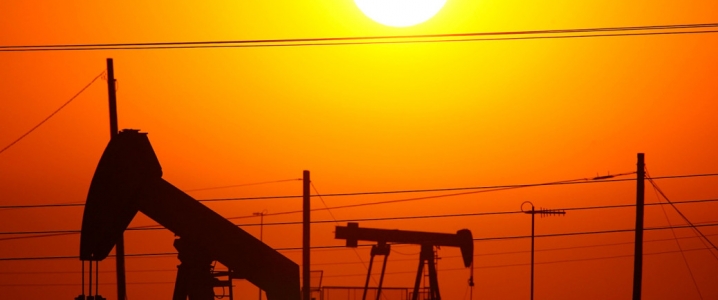Russia’s budget has received more than US$63.5 billion (4 trillion Russian rubles) in additional revenues thanks to the production cut deal between OPEC and non-OPEC nations led by Russia that boosted oil prices, Kirill Dmitriev, chief executive of the Russian Direct Investment Fund (RDIF), said in an interview with Russian television channel NTV.
“Thanks to the work of President Vladimir Putin with the King and Crown Prince of Saudi Arabia, relations are in a unique phase, and this gives a great boost to the budget. We believe that the Russian budget received an extra 4 trillion rubles thanks to this deal with Saudi Arabia,” Dmitriev said.
In February this year, Russia’s Energy Minister Alexander Novak said that due to the higher oil prices as a result of the OPEC-Russia pact, Russia’s federal budget had received so far US$27 billion (1.7 trillion rubles) more, while the oil companies received a combined US$11 billion (700 billion rubles) more since the beginning of 2017.
In May, the Russian finance ministry said that due to the oil price rally, Russia expects its oil and gas revenues to jump fivefold compared to the expected revenues set in its 2018 budget.
Oil and gas exports account for around 40 percent of Russia’s federal budget revenues. Related: This Is How Much U.S. Households Lose As Gas Prices Rise
Due to the unexpectedly high oil prices, Russia is currently on track to book a first budget surplus since 2011, at 0.45 percent of gross domestic product (GDP), compared to previous expectations for a deficit of 1.3 percent of GDP.
At the end of last month, Russia and OPEC’s largest producer and de facto leader Saudi Arabia agreed to boost production by unspecified quotas for individual countries part of the pact, to ‘ease market and consumer anxiety’ over the high oil prices. According to Russian Energy Minister Novak, Russia’s share of the 1-million-bpd total OPEC/non-OPEC increase could be around 200,000 bpd.
Before the decision to reverse some of the cuts—or as OPEC and allies put it, to stick to 100-percent compliance rates—Russia’s pledge in the pact was to cut 300,000 bpd of its oil production.
By Tsvetana Paraskova for Oilprice.com
More Top Reads from Oilprice.com:
- Confirmed: ISIS Sold Oil To Assad & Turkey
- The Biggest Risk For Natural Gas Markets
- Mexico’s Oil Crescent Faces A Perfect Storm


















It is difficult to overstate the importance of the oil and gas industry to the Russian economy. Russia has some of the world’s most sophisticated and advanced technical, industrial and scientific bases. Globally, Russia is competitive in defence products, space launches, nuclear power, mineral resources and information technology. But none of these industries compares to oil and gas exports. To the average Russian, the country’s economy seems to be structured around exchanging barrels of oil for imports. The trouble, of course, is that as oil prices have plunged, those barrels buy ever fewer imports. Unfortunately the Russians, under seventy years of communist regime, have failed to convert their technical prowess into exports of manufactured goods with the exception of weaponry.
In 2014 and before the global collapse of crude oil prices, 50% of Russia’s budget and about 68% of its export revenues came from oil and gas exports. The low oil prices adversely affected the Russian economy leading it into recession and a significant devaluation of the ruble.
However, President Putin’s strategy of diversification and reforms since 2014 aimed at reducing the Russian economy’s dependence on oil and gas export revenues and its vulnerability to low oil prices is now bearing fruit with the Russian economy able to live forever with an oil price of $40 or less.
Oil and gas exports account now for around 40% Russia’s federal budget revenues compared with 68% in 2014.
Dr Mamdouh G Salameh
International Oil Economist
Visiting Professor of Energy Economics at ESCP Europe Business School, London